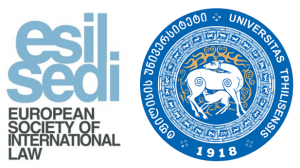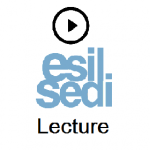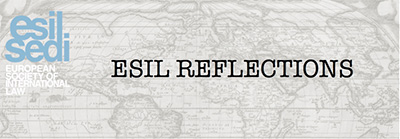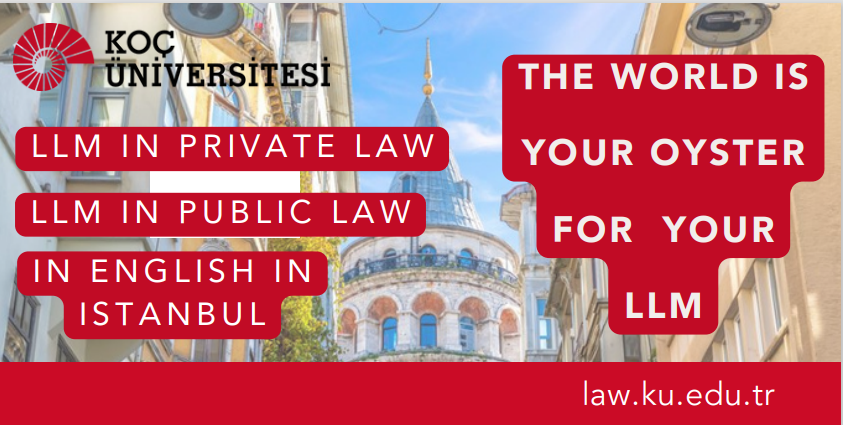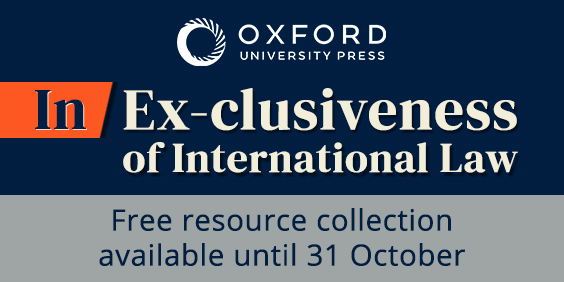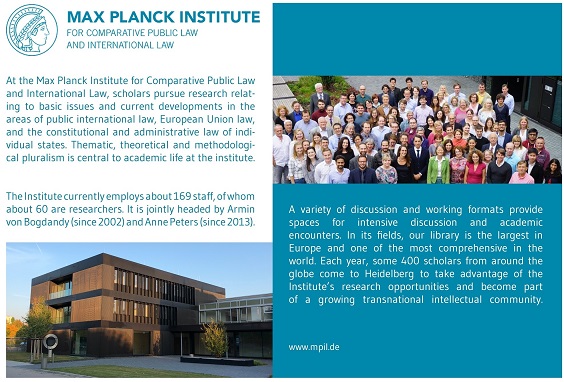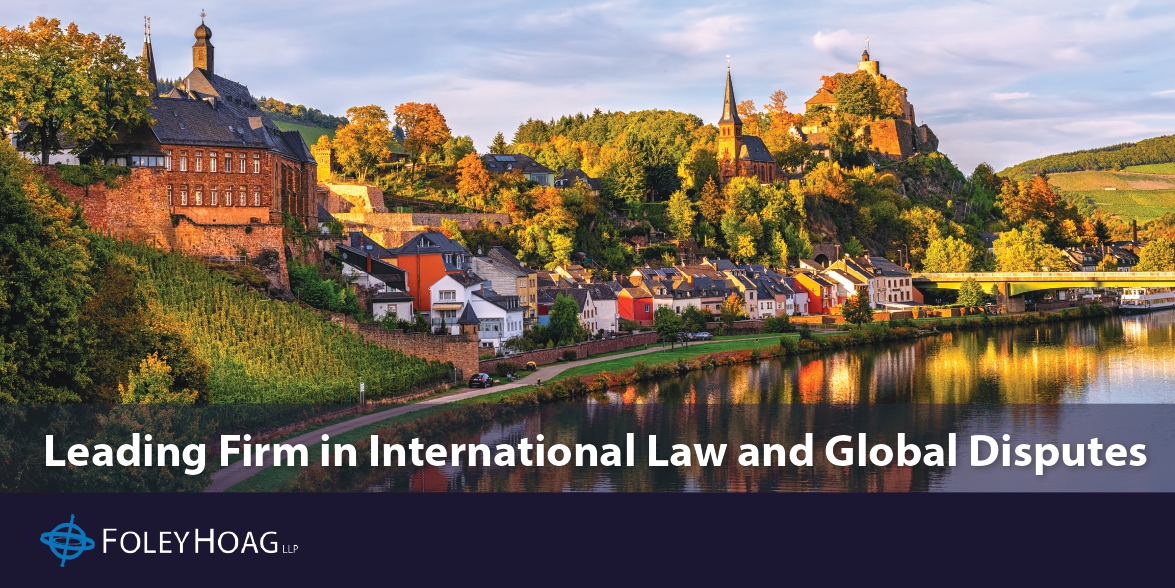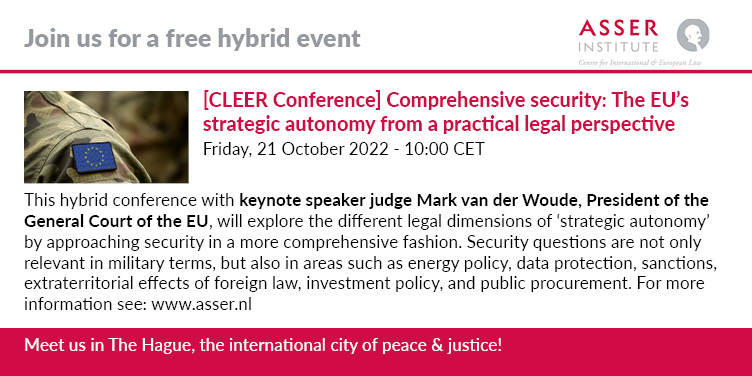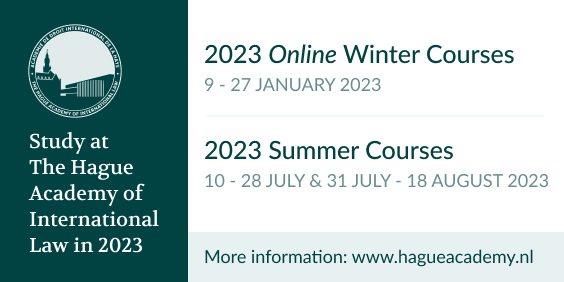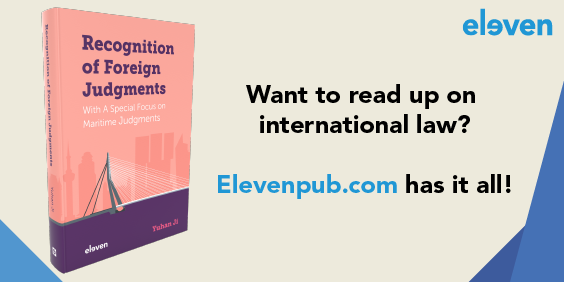ESIL Newsletter – Autumn 2022
Editor: Sandrine Maljean-Dubois (University of Aix-Marseille)
 In this issue
In this issue
-
- Message of the President
- Guest Editorial by Inga Martinkute and Anton Korynevych: Accountability for the Crime of Aggression against Ukraine in International Law
- Meet an ESIL member – Florenz Volkaert
- What’s Going On?
- Greening ESIL
- ESIL Series
- ESIL Paper Series
- ESIL Lectures
- ESIL Reflections
- News from Interest Groups
1. Message of the President
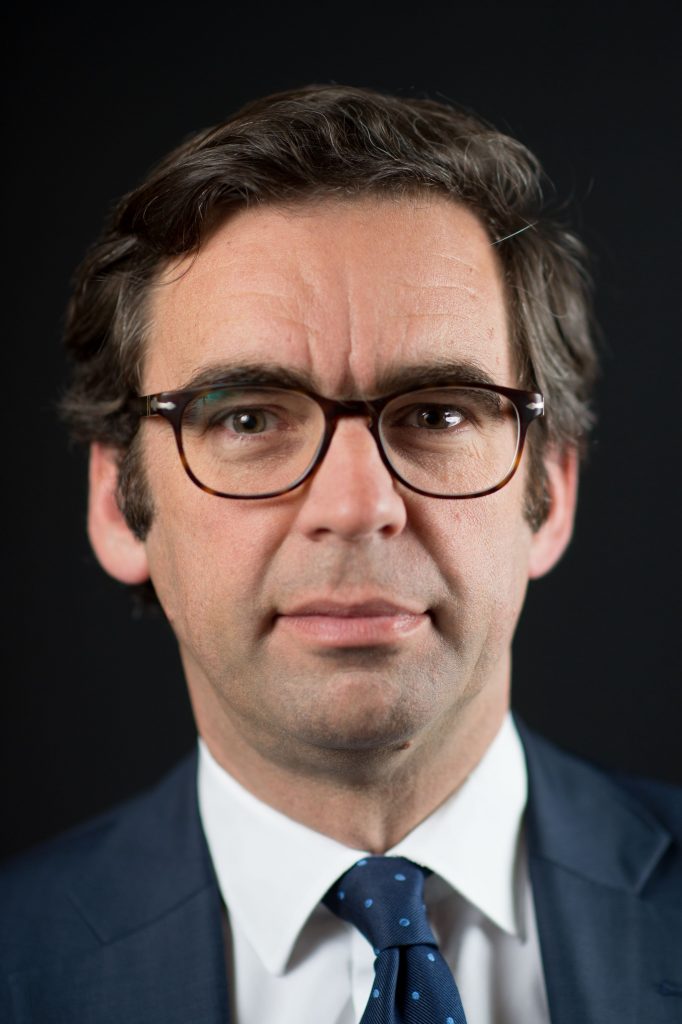
Dear ESIL Members,
The Annual Conference in Utrecht was a resounding success thanks to the dedication, hard work and generosity of our colleagues Seline Trevisanut, Cédric Ryngaert and Machiko Kanetake. To them and to all the members of their local team, let me once again express our gratitude.
I would also like to express my deep gratitude to the members of the Board who have served our Society and whose term came to an end: Christina Binder, Paolo Farah, Photini Pazartzis—our past President who endured the Covid years—, Evelyne Schmid and Ramses Wessel. Following the elections held during the Utrecht conference, new Board members were elected: Veronika Fikfak, Edouard Fromageau, Patrycja Grzebyk, Federica Paddeu and Daniel Peat. Let me congratulate them upon their election and warmly welcome them on the governing body our Society. Warm congratulations also to Gleider Hernández and Ganna Yudkivska who were elected for a second term on the Board. Finally, we welcome on the Board Inga Martinkute, who is organizing the 2024 Annual Meeting to be held in Vilnius. She takes over from Seline Trevisanut whose presence on the Board unfortunately came to an end with the Utrecht conference.
I am grateful to Gleider Hernández for having accepted to continue to serve as Secretary General—a central role in our Society— and to Neha Jain and Christian Tams who agreed to take over from Evelyne Schmid and Ramses Wessel as Vice-Presidents. Together with the other Board Members that I have not yet named—i.e., Freya Baetens, Veronika Bilkova (also one of our Vice-Presidents), Adriana Di Stefano, Sandrine Maljean-Dubois (who organizes the 2013 Annual Conference in Aix-en-Provence), Ana Salinas and Catharine Titi, I look forward to collegial and productive meetings for the better good of ESIL and its members.
By the end of this month, and thanks mostly to the efforts of Ganna Yudkivska, ESIL organizes a joint conference in Georgia, at Tbilisi State University, on the relationship between international humanitarian law and international human rights law. This will be ESIL’s first event in the Caucasus.
Thanks to the generosity of Lauri Mälksoo, our next Research Forum will be held on 27-28 April in Tartu, Estonia, about 3,000km North-west of Tbilisi, on Regional Developments of International Law in Eastern Europe and Post-Soviet Eurasia. In the current circumstances, be it in Ukraine or in the Caucasus, the importance of that theme could not be stressed enough. Young research scholars should have a look at the call for papers and are strongly encouraged to submit an abstract before mid-October.
For many of us, a new academic year begins. Let me wish you a fruitful and fulfilling term— as we enter yet another season of war on our continent, we have many important things to say to our students.
Pierre d’Argent
ESIL President
2. Guest Editorial by Inga Martinkute and Anton Korynevych: Accountability for the Crime of Aggression against Ukraine in International Law
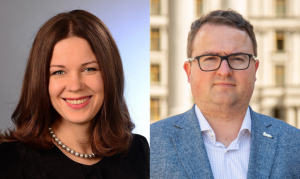 Inga Martinkute and Anton Korynevych
Inga Martinkute and Anton Korynevych
Even one day is too long for war. The question lingering in the air and in the minds of international lawyers is how and when persons responsible will be held accountable for the unimaginable violence, human suffering, destruction of lives, infrastructure, massive displacement of people and generation-long psychological traumas. This pursuit of accountability is undertaken with the sad realization that some of the people, villages and towns like Mariupol in Ukraine might not survive to see the perpetrators of these atrocities brought to justice.
Today war crimes and crimes against humanity committed during Russia’s aggression against Ukraine are being investigated by Ukraine and a number of other states, as well as by the International Criminal Court (ICC). The referral of the situation in Ukraine made by 43 States and the previously given Ukraine’s consent to the ICC’s jurisdiction over all crimes committed during the armed conflict since 2014 provide a basis for the work of the Office of the Prosecutor of the ICC. The ICC is investigating the situation in Ukraine for alleged genocide, crimes against humanity and war crimes. The ICC remains a key body of international criminal justice, and Ukraine is actively cooperating with the ICC. For instance, the law amending Ukraine’s Code of Criminal Procedure establishing provisions for Ukraine’s cooperation with the ICC has recently been adopted. However, the ICC cannot investigate and prosecute individuals for the crime of aggression against Ukraine unless a combination of conditions is satisfied, i.e. both Ukraine and Russia ratify the Rome Statute and the Kampala Amendments on the crime of aggression or the act of aggression is established in a UN Security Council resolution, and the Security Council refers the situation to the ICC.
As argued by Carrie McDougall, the establishment of a Special Tribunal for the Crime of Aggression against Ukraine is the best available option, as currently there is no alternative international court or tribunal that could bring to accountability Russia’s top political and military leadership for committing the crime of aggression against Ukraine. The creation of a Special Tribunal closes this gap. Furthermore, the establishment of a Special Tribunal for the Crime of Aggression against Ukraine will not in any way impede a further investigation by the ICC.
Various international organizations and states support the establishment of the Special Tribunal. For example, the Parliamentary Assembly of the Council of Europe on 27 April 2022 adopted Resolution 2433 (2022) and on 28 April 2022 adopted Resolution 2436 (2022) urging the establishment of the Special Tribunal. The European Parliament on 19 May 2022 adopted Resolution 2022/2655(RSP) calling the EU institutions to support the creation of the Special Tribunal. On 30 May 2022, the NATO Parliamentary Assembly adopted a declaration “Standing with Ukraine” supporting the establishment of the Special Tribunal. On 6 July 2022, the 29 Annual session of the OSCE Parliamentary Assembly adopted a resolution “The Russian Federation’s war of aggression against Ukraine and its people, and its threat to security across the OSCE region” calling for the quick establishment of a special international criminal tribunal. Also, the Parliament of the Republic of Lithuania adopted a resolution supporting the establishment of the Special Tribunal. On 19 June 2022, the Ukrainian Parliament in the address to the European Union called on the EU as the regional leader to be involved in the creation of the Special Tribunal for the Crime of Aggression against Ukraine.
In May 2022 Minister of Foreign Affairs of Ukraine Dmytro Kuleba sent a letter to his colleagues from other states with the suggestion to explore and consider the idea of establishing the Special Tribunal. In these consultations with states and international organizations, the shape of the Special Tribunal is being considered with some aspects of its functioning and status still under discussion, including the issue of immunities, which will be carefully explored.
The Special Tribunal could be established on the basis of a multilateral treaty between states (which will be open to accession and to making endorsements) or on the basis of an agreement with an international organization with the overall aim of ensuring a fair trial. An agreement between Ukraine and the European regional organizations (European Union, Council of Europe) may be the proper basis for the establishment of the Special Tribunal. Alternatively, the Special Tribunal could be a Ukrainian internationalized relocated court with jurisdiction on the crime of aggression against Ukraine with support from international organizations.
The establishment, functioning and organization of the Special Tribunal shall follow the best practices of the International Criminal Court as set out in the Rome Statute. The definition of the “crime of aggression” could be used from Article 8 bis of the Rome Statute of the ICC. Although Ukrainian criminal procedure law allows trials in absentia, such a possibility is unlikely to be included in the procedure of the Special Tribunal because such practice is controversial in international law. It is envisaged that the temporary jurisdiction of the Special Tribunal shall cover all events since February 2014 and preparation for them – the beginning of the armed aggression of the Russian Federation against Ukraine.
The Special Tribunal shall have jurisdiction over natural persons. Persons participating in the crime of aggression against Ukraine should be individually responsible and liable for aggressive war. These provisions should apply only to persons in a position to exercise effective control over or to direct the political or military action of a state. The official position of a defendant, whether as a head of state or another official of a state, should not free them from individual criminal responsibility or mitigate punishment.
The Special Tribunal could be funded through voluntary contributions. States, intergovernmental and non-governmental organizations should be encouraged to contribute funds, equipment and services to the Special Tribunal, including the offer of expert personnel.
The opening of the Interim Prosecutor’s Office, staffed with lawyers from the Ukrainian Prosecutor General’s Office, could be the first practical step on the way to the establishment of the Special Tribunal and could start preparing for the trial of the century.
This Russian aggression against Ukraine is the biggest war in Europe since 1945, and the legal response to it must be adequate because the alternative to the establishment of the Special Tribunal is lawlessness and impunity. Other problems of international law and its architecture should not be sufficient reason not to fix at least some areas that can be fixed, in particular, since the Special Tribunal is not aimed to cover other situations, cases or set precedents. On the contrary, maybe the sustained practice of accountability for the crime of aggression will contribute to the positive development of international law.
The establishment of the Special Tribunal for the Crime of Aggression against Ukraine fills an important accountability gap for the grave violations of international law committed in and against Ukraine. Since 2014 Ukraine effectively uses all available international legal mechanisms to bring Russia and its nationals to responsibility for internationally wrongful acts and international crimes. But these mechanisms are not enough, and Russia continues its illegal conduct. The Special Tribunal is believed to be an appropriate tool to bring such conduct to an end.
Despite its many limitations, public international law provides adequate tools to answer the boldness of Russian aggression. What is needed is the will to employ those tools and to do it fast since every day of this atrocious war cost human lives, torture and suffering.
3. Meet an ESIL member – Florenz Volkaert
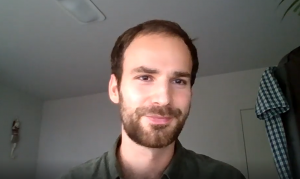
You can find the video introducing Florenz Volkaert, PhD Fellow of the Research Foundation – Flanders (FWO) at Ghent University, and winner of the 2022 ESIL Young Scholar Prize and member of the Coordinating Committee of the ESIL Interest Group on the History of International Law, here.
4. What’s Going On?
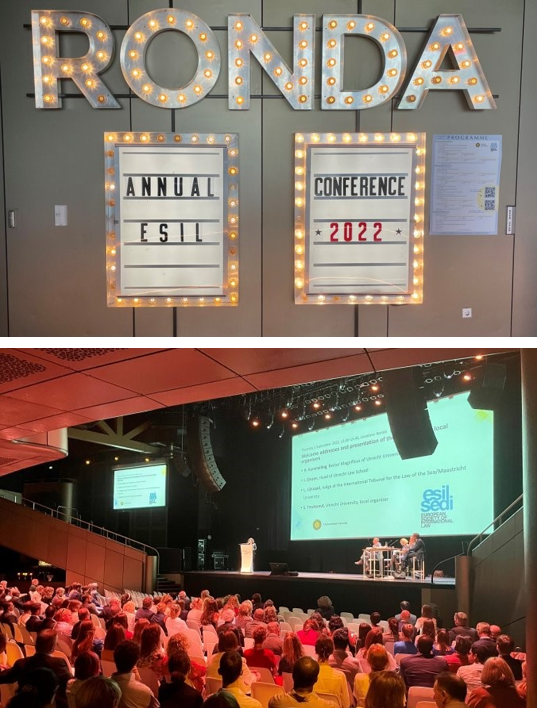 Utrecht University School of Law hosted the 17th Annual Conference of the European Society of International Law
Utrecht University School of Law hosted the 17th Annual Conference of the European Society of International Law
(31 August – 3 September 2022)
In/Ex-clusiveness of international law
From 31 August to 3 September 2022, the Utrecht School of Law successfully hosted the 17th Annual Conference of the European Society of International Law (ESIL). The conference was the first post-pandemic ESIL conference, taking placing without capacity limitations. It attracted more than 400 participants from various parts of the world, who engaged—at TivoliVredenburg—its innovative theme: ‘In/Ex-clusiveness of International Law’. The conference provided a different lens to the field of law to revisit some of the underlying assumptions about international law, practices, and theories.
The ESIL annual conference kicked off with welcome messages from Henk Kummeling (Rector Magnificus) and Ivo Giesen (Dean of Utrecht Law School). Both highlighted the importance of the ESIL annual conference in Utrecht as a venue to facilitate international legal debates and strengthen the networks of scholars and practitioners. Seline Trevisanut, who has led the team of local organisers, introduced the conference’s main objectives. She was joined by the opening speech of Liesbeth Lijnzaad (Judge at the International Tribunal for the Law of the Sea/Maastricht University).
Historical, political, and economic baggage of international law
The inaugural panel, chaired by Cedric Ryngaert (local organiser), delivered powerful insights on how international law and scholarship perpetuate the structure of exclusion. This was followed by six fora panels and twelve agorae, in which the speakers reflected on the theme of the conference. Many questions have been posted and addressed: how exclusive or inclusive is the construction of the history of international law? Which economic ideologies dominate international law and development? What forms of violence define security threats in international law? How can the university curriculum on international law be more inclusive?
As one of the many highlights of the conference, Fred Soons (UU) presented some remarks during the Welcome Reception at Utrecht University Academy Building. Introducing the historical significance of the venue, he showed how Utrecht, as city, province and university, participated in the modern practice of international law. The following evening, the participants had the opportunity to listen to Philippe Sands (UCL) who delivered a dinner speech, sharing his insights into the establishment of a special criminal tribunal for aggression against Ukraine. He highlighted how the past instances of injustice—especially the US/UK-led military invasion in Iraq in 2003—affect the present calls for justice elsewhere.
Overall, the conference flagged out how past projects are embedded in the everyday life of international law, sometimes hidden in legal narrative, procedural details, and Annex. During the concluding panel chaired by Machiko Kanetake (local organiser), the panelists discussed how the ‘ways forward’ may look like for international law, legal scholars, and practitioners.
Acknowledgements
The 17th ESIL Annual Conference was organised by a local team, including: Seline Trevisanut; Cedric Ryngaert; Machiko Kanetake; Róisín Burke; Miranda Walraven; Angélique Neisingh; Inge Terwan; and Jelle Honing. In the days of the conference, the team could count on the kind assistance of Elise Kolen, Yiokasti Mouratidi, Kaan Özkonak, and Samantha Robb. During the preparation of the programme, several UU colleagues kindly participated to the in the many agorae selection committees, namely: Natalie Dobson; Katharine Fortin; Laura Henderson; Alexandra Hofer; Brianne McGonigle Leyh; Lan Nguyen; Salvo Nicolosi; Luca Pasquet; Rozemarijn Roland Holst; and Lorena Sosa.
 2023 ESIL Research Forum in Tartu – CALL FOR PAPERS STILL AVAILABLE!
2023 ESIL Research Forum in Tartu – CALL FOR PAPERS STILL AVAILABLE!
The call for papers is still available and the deadline for submissions is Friday 14 October 2022. The Research Forum will take place on 27-28 April 2023 and it will address the topic: “Regional Developments of International Law in Eastern Europe and Post-Soviet Eurasia“.
The University of Tartu (in the past also known as Dorpat) is recognized as one of the leading research universities in Eastern Europe. It was established in 1632 and the law of nations was studied here already in the 17th century. We very much look forward to your submissions and are excited to welcome you in Tartu in April 2023!
Lauri Mälksoo,
Professor of International Law at the University of Tartu and member of the organizing team
ESIL-Ivane Javakhishvili Tbilisi State University Joint Conference – “Emerging Issues of Relationship between International Humanitarian Law and International Human Rights Law”
The European Society of International Law (ESIL) and Ivane Javakhishvili Tbilisi State University organise a joint conference in Tbilisi entitled Emerging Issues of Relationship between International Humanitarian Law and International Human Rights Law on 29 and 30 September 2022.
The final programme is available here. If you would like to join the conference online please register here.
5. Greening ESIL
Like other learned societies, ESIL is currently considering how its activities might become more sustainable. A questionnaire was sent to all ESIL members this summer (for the summary of the responses click here) and this issue was discussed at the General Assembly in Utrecht. Discussions will continue within the Board in the coming months, and the Early-career Network and the Diversity Advisory Body will be consulted on the strategy and actions to be taken. The issue will be discussed again at the next General Assembly.
6. ESIL Series
In 2017, ESIL and OUP established a book series to publish high-quality volumes on the themes of ESIL events. The most recent volume was published in August 2021, originating in presentations given at the Naples Annual Conference:
The Protection of General Interests in Contemporary International Law. A Theoretical and Empirical Inquiry (edited by Massimo Iovane, Fulvio M. Palombino, Daniele Amoroso, and Giovanni Zarra).
This follows Migration and the European Convention on Human Rights, edited by Başak Çalı, Ledi Bianku, and Iulia Motoc, which appeared in early 2021. (A video of a book launch is available here).
Further books are in the pipeline, including edited volumes on ‘Secondary Rules of Primary Importance’ and ‘International Law and Universality’. For more information, incl. previously-published titles, please visit the Series webpage.
If you are interested in putting together a volume for inclusion in the series, please email the General Series Editor, Christian J. Tams (Christian.Tams@glasgow.ac.uk).
7. ESIL Paper Series
The ESIL Paper Series features papers presented at ESIL events (Annual Conferences, Research Forums, and Interest Group events). Publication in the ESIL Paper Series enables authors to disseminate their work widely and reach broader audiences without the usual delays involved in more traditional means of publication. It does not prevent the subsequent publication of papers in academic journals or edited collections.
The current Series editors are ESIL Board members Adriana Di Stefano, Federica Paddeu and Catharine Titi.
ESIL Papers will be included in the EUI CADMUS Research Repository. The Papers presented at the 2021 ESIL Annual Conference in Stockholm and at the 2021 ESIL Research Forum in Catania are now available!
For any enquiries or if you are interested in publishing in the ESIL Papers Series, please send an email to esil.papers@gmail.com.
NOTE: Papers presented at ESIL Conferences from 2011 to 2019 can be downloaded here.
8. ESIL Lectures
The ESIL Lecture Series hosts broadcasts of presentations on international law topics held at partner institutions, allowing the presentation to reach a wider audience of ESIL members and non-members alike.
ESIL lectures are available on the ESIL website and on the ESIL YouTube Channel.
To propose an ESIL lecture, please read the ESIL Conference Series Guidelines.
The next ESIL Lecture will be held by Prof. Jean d’Aspremont on The Discourse on Customary International Law at the University of Graz on 30 September 2022.
The recording of the latest ESIL Lectures held at the University of Granada on 18 March 2022 by Prof. Jan Wouters on the subject of Enhancing the Rule of Law in the EU’s External Action is now available here.
All previous ESIL Lectures are listed here.
9. ESIL Reflections
ESIL Reflections offer up-to-date reflections on current issues in international law. The Reflections cover a wide range of topics relating to current developments in international law and practice as well as theoretical reflections in a way that is relatively accessible to non-experts. The aim is to foster discussion between ESIL members and international law scholars and practitioners more generally – in Europe, but also beyond. ESIL Reflections are published on this website and distributed freely to ESIL members.
The editors are Federico Casolari, Patrycja Grzebyk (editor-in-chief), Ellen Hey, Guy Sinclair and Ramses Wessel.
ESIL Reflections are short papers (3,000-4,000 words) that argue one particular point that may trigger further debate in the scientific community. Extensive referencing is to be avoided; references are only necessary in case of direct citations or when new or less well-known works are mentioned.
ESIL Members who have an interest in contributing are encouraged to do so. Please contact Patrycja Grzebyk (patrycja.grzebyk@uw.edu.pl) if you would like to contribute.
Copying and reprinting of ESIL Reflections is permitted with due acknowledgement. In such instances, please state: (parts of) this article first appeared as an ESIL Reflection (volume x, issue x), published by the European Society of International Law, www.esil-sedi.eu.
Latest publications are:
- Interest, Strategies and Veto Players: The Political Economy of Interpreting Customary International Law by Anne van Aaken
- Introduction to the Series “Customary Law Interpretation as a Tool’ by Panos Merkouris and Nina Mileva
10. News from Interest Groups
 ESIL Interest Groups are a vital part of the Society’s success and activities. A list of the groups is available on the ESIL website.
ESIL Interest Groups are a vital part of the Society’s success and activities. A list of the groups is available on the ESIL website.
Interest Group on International Economic Law
We were really happy to welcome all speakers and attendees at the IG’s pre-conference workshop on “Civil Society and International Economic Law”, which was held as a hybrid side event of the 17th ESIL Annual Conference in Utrecht on 31 August 2022. Thanks so much again to all the participants for excellent papers and insightful discussions! We are now planning other events: check regularly the IG webpage and follow us on Twitter!
Interest Group on the Law of Culture
The Interest Group on International Law of Culture held two events within the framework of the 17th ESIL Annual Conference in Utrecht. It organised a hybrid pre-conference workshop entitled “International Law of Culture in Armed Conflict” that particularly focused on the war in Ukraine. It also held the roundtable “In/Ex-Clusiveness of Diversity in International Law” (Agora 3) which queried various ways in which diversity is articulated in international law. The edited, 15 Years of the UNESCO Diversity of Cultural Expressions Convention: Actors, Processes and Impact, stemming from the Group’s work, will be published by Hart Publishing-Bloomsbury Academic later this year. Follow us on Twitter!

